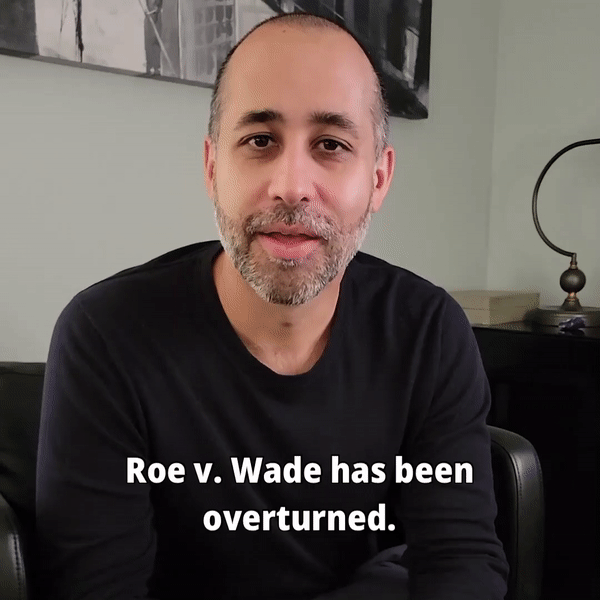In today’s digital age, people have no hesitation in sharing their opinions on just about anything online. Internet reviews on review aggregation websites like Yelp.com or TripAdvisor.com have become a fact of life for most business owners. And while most savvy consumers know that reviews should always be taken with a grain of salt, most people make a habit of consulting user reviews before trying a new product or service.
What many people might not have realized, however, is that some businesses have long been using penalizing tactics to deny consumers the freedom to write negative reviews online whenever they’ve had a bad experience with a seller. To most, the right to do so probably seems like common sense. Nonetheless, certain retailers have been doing their best to prevent it.
No more, thanks to newly enacted legislation aimed to prevent sellers from doing just that. In one of his final moves before leaving office, President Obama signed a number of new bills into law on December 14, 2016. Among the newly enacted legislation was the Consumer Review Fairness Act of 2016 (“the Act”), which makes void certain contract provisions that prevent consumers from giving sellers negative reviews.
The Impetus for the Legislation
With the rise in popularity of online consumer review sites, an increasing number of businesses began to sneak “gag orders” into form contracts in order to protect their online reputations. Gag orders are clauses in contracts that prohibit customers from sharing honest, negative opinions about a service or company, by requiring that they pay a penalty for doing so. For example, a contract may explicitly state that customers are barred from posting bad reviews about a business on sites like Yelp or on social media, and if they do, the company can seek damages.
In one famous example, the Union Street Guest House, an inn in Hudson, New York, threatened to fine any wedding guests staying at the property $500 for each negative online review. In another infamous instance, a pet sitter in Texas served a couple with a lawsuit for over $6,700 after they wrote a negative Yelp review about the company.
In both instances, the attempts at penalties backfired against the companies due to the bad publicity they garnered. However, other businesses were free to continue imposing contract terms that would prevent consumers from expressing their honest opinions if those opinions happened to be negative. A common example can be found in many vacation home rental contracts, which include fine print saying that the homeowner may keep a housing deposit if the renter or other guests leave negative reviews of the property.
Legislative Reactions
In the wake of such egregious tales, California passed a so-called “Yelp law” in September 2014, which outlawed the use of “disparagement clauses” that barred customers from posting negative comments online about the goods or services they received. After the California law was passed, several major online review sites like TripAdvisor and Yelp joined in the effort to push for federal legislation that would similarly ban these kinds of contract provisions.
What would ultimately result in the Consumer Review Fairness Act began as two separate but highly similar pieces of legislation in both the House and the Senate late last year and earlier this year. Both bills came about in response to the increasing number of gag orders being used to silence consumers who had negative experiences with sellers or service providers.
Representative Leonard Lance, one of the congressmen behind the Senate bill, summed up the need for legislation to counteract the trend in penalties for negative reviews: “Online reviews and ratings are critical in the 21st Century and consumers should be able to post, comment, and tweet their honest and accurate feedback without fear of retribution.”
The two versions of the legislation were easily reconciled. Congress passed the new legislation on November 28, 2016, after which the bill was signed into law by President Obama. The Act renders void any clauses in form contracts that 1) restrict or prohibit the ability of individuals to provide online reviews, or 2) impose a fee or penalty against an individual for submitting an online review.
Once the Act became law on December 14, it gave the Federal Trade Commission the authority to enforce the Act under its powers to prevent deceptive trade practices and unfair competition. State attorneys general can also bring suit under the Act against companies who violate it by attempting to penalize customers for bad reviews.
The Impact on Consumers
The passage of the Act is being seen as a huge win for consumers. The Consumer Review Fairness Act provides the federal government with a concrete means of enforcing certain protections that already existed, but, to some, did not go far enough.
Even before the passage of the new legislation, the Better Business Bureau required that its accredited members not use gag orders or penalizing contract clauses. Yelp, for its part, used to provide pop-up warnings to visitors for any businesses that insisted on using such penalty clauses. Now, with the federal government having the ability to go after companies who do, Yelp would no longer be required to take such measures.
Yelp, who has previously been vocal about attempts by businesses to threaten negative reviewers into silence, applauded the passage of the Act, saying “One of our top priorities has always been to protect the ability for internet users — everyone from Yelpers to online shoppers — to share their experiences online, whether they be positive or negative. The Consumer Review Fairness Act gives Americans nationwide new guaranteed legal protections when it comes to sharing these honest, first-hand experiences. We will continue to advocate at both the federal and state levels for legislation to protect consumers.”
TripAdvisor has been similarly outspoken against coercive tactics like gag clauses, calling them “an unscrupulous way of preventing critical reviews from being published,” and noting that “The result is an incomplete and thus less reliable collection of information for reviewers, and an uneven playing field for that business’s competitors. Curtailing the freedom of expression of Americans is simply wrong.”
The biggest impact of the new legislation is that it now makes threats by businesses against customers officially meaningless. Not only are companies now legally prohibited from following through on such threats, they also now face the possibility of state or federal governments taking legal action against them for employing such tactics.
The passage of the Act does not mean, however, that consumers should now trust everything they read in online reviews. The omission of certain negative reviews due to gag orders was, of course, only one of many factors skewing the reliability of online reviews.
As any intelligent Internet user knows, any opinion you read online must be viewed with a heavy dose of skepticism. Fore example, it’s common knowledge that businesses will frequently submit flattering reviews about themselves or negative reviews of competitors. Some even pay customers to write positive reviews about their stays at a hotel or products that they ordered.
These practices, of course, are not at all impacted by the new legislation. So, while the Act may lead to more honest, negative reviews appearing on review aggregation sites, the overall accuracy of a company’s online review profile remains subject to debate.
The legislation also does not prevent companies from suing over negative reviews. Many people mistakenly believe that the First Amendment grants an unfettered right to voice an opinion. In reality, it does not. While it does prevent the government from telling you what you can and can’t say, it doesn’t prevent private businesses from attempting to do so.
That means that companies can still bring lawsuits against consumers who leave bad reviews, in an attempt to shut down their critics and get people to take down negative opinions they’ve left online. Even if the suits lack merit, they often have the desired effect, since most customers would rather delete a bad review than incur the time and expense of a lawsuit.
The Act would do nothing to stop these kinds of lawsuits. It merely invalidates clauses that lay out such penalties as a contractual matter up front.
If you have questions about how the Consumer Review Fairness Act or California’s “Yelp law” impact your business, contact Pasha Law today for more information.




![Mattress Giants v. Sleepoplis: The War On Getting You To Bed [e293]](https://www.pashalaw.com/wp-content/uploads/2017/12/sleepopolis-1024x543.jpg)


![Ultimate Legal Breakdown: Negative Online Reviews [e288]](https://www.pashalaw.com/wp-content/uploads/2017/06/Ultimate-Legal-Breakdown-Online-Reviews-1-1024x543.jpg)

![How Malls Can Require Stores To Be Open On Thanksgiving [e240]](https://www.pashalaw.com/wp-content/uploads/2015/11/iStock_000066139999_Small-1.jpg)




![Law in the Digital Age: Exploring the Legal Intricacies of Artificial Intelligence [e323]](https://www.pashalaw.com/wp-content/uploads/2023/11/WhatsApp-Image-2023-11-21-at-13.24.49_4a326c9e-300x212.jpg)
![Unraveling the Workforce: Navigating the Aftermath of Mass Layoffs [e322]](https://www.pashalaw.com/wp-content/uploads/2023/07/Untitled-design-23-300x212.png)
![Return to the Office vs. Remote: What Can Employers Legally Enforce? [e321]](https://www.pashalaw.com/wp-content/uploads/2023/01/Pasha_LSSB_321_banner-300x212.jpg)
![Explaining the Hans Niemann Chess Lawsuit v. Magnus Carlsen [e320]](https://www.pashalaw.com/wp-content/uploads/2022/10/LAWYER-EXPLAINS-7-300x169.png)
![California v. Texas: Which is Better for Business? [313]](https://www.pashalaw.com/wp-content/uploads/2021/07/Pasha_LSSB_CaliforniaVSTexas-300x212.jpg)
![Buyers vs. Sellers: Negotiating Mergers & Acquisitions [e319]](https://www.pashalaw.com/wp-content/uploads/2022/06/Pasha_LSSB_BuyersVsSellers_banner-300x212.jpg)
![Employers vs. Employees: When Are Employment Restrictions Fair? [e318]](https://www.pashalaw.com/wp-content/uploads/2022/05/Pasha_LSSB_EmployeesVsEmployers_banner-1-300x212.jpg)
![Vaccine Mandates Supreme Court Rulings [E317]](https://www.pashalaw.com/wp-content/uploads/2022/02/WhatsApp-Image-2022-02-11-at-4.10.32-PM-300x212.jpeg)
![Business of Healthcare [e316]](https://www.pashalaw.com/wp-content/uploads/2021/11/Pasha_LSSB_BusinessofHealthcare_banner-300x212.jpg)
![Social Media and the Law [e315]](https://www.pashalaw.com/wp-content/uploads/2021/10/WhatsApp-Image-2021-10-06-at-1.43.08-PM-300x212.jpeg)
![Defining NDA Boundaries: When does it go too far? [e314]](https://www.pashalaw.com/wp-content/uploads/2021/09/Pasha_LSSB_NDA_WordPress-2-300x212.jpg)
![More Than a Mistake: Business Blunders to Avoid [312] Top Five Business Blunders](https://www.pashalaw.com/wp-content/uploads/2021/06/Pasha_LSSB_Blunders_WP-1-300x212.jpg)
![Is There a Right Way to Fire an Employee? We Ask the Experts [311]](https://www.pashalaw.com/wp-content/uploads/2021/02/Pasha_LSSB_FireAnEmployee_Website-300x200.jpg)
![The New Frontier: Navigating Business Law During a Pandemic [310]](https://www.pashalaw.com/wp-content/uploads/2020/12/Pasha_LSSB_Epidsode308_Covid_Web-1-300x200.jpg)
![Wrap Up | Behind the Buy [8/8] [309]](https://www.pashalaw.com/wp-content/uploads/2020/11/Pasha_BehindTheBuy_Episode8-300x200.jpg)
![Is it all over? | Behind the Buy [7/8] [308]](https://www.pashalaw.com/wp-content/uploads/2020/09/iStock-1153248856-overlay-scaled-300x200.jpg)
![Fight for Your [Trademark] Rights | Behind the Buy [6/8] [307]](https://www.pashalaw.com/wp-content/uploads/2020/07/Fight-for-your-trademark-right-300x200.jpg)
![They Let It Slip | Behind the Buy [5/8] [306]](https://www.pashalaw.com/wp-content/uploads/2020/06/Behind-the-buy-they-let-it-slip-300x200.jpg)
![Mo’ Investigation Mo’ Problems | Behind the Buy [4/8] [305]](https://www.pashalaw.com/wp-content/uploads/2020/05/interrobang-1-scaled-300x200.jpg)
![Broker or Joker | Behind the Buy [3/8] [304] Behind the buy - Broker or Joker](https://www.pashalaw.com/wp-content/uploads/2020/04/Joker-or-Broker-1-300x185.jpg)
![Intentions Are Nothing Without a Signature | Behind the Buy [2/8] [303]](https://www.pashalaw.com/wp-content/uploads/2020/04/intentions-are-nothing-without-a-signature-300x185.jpg)
![From First Steps to Final Signatures | Behind the Buy [1/8] [302]](https://www.pashalaw.com/wp-content/uploads/2020/04/first-steps-to-final-signatures-300x185.jpg)
![The Dark-side of GrubHub’s (and others’) Relationship with Restaurants [e301]](https://www.pashalaw.com/wp-content/uploads/2015/04/When-Competition-Goes-Too-Far-Ice-Cream-Truck-Edition-300x201.jpg)
![Ultimate Legal Breakdown of Internet Law & the Subscription Business Model [e300]](https://www.pashalaw.com/wp-content/uploads/2019/05/Ultimate-Legal-Breakdown-of-Internet-Law-the-Subscription-Business-Model-300x196.jpg)
![Why the Business Buying Process is Like a Wedding?: A Legal Guide [e299]](https://www.pashalaw.com/wp-content/uploads/2019/03/futura-300x169.jpg)
![Will Crowdfunding and General Solicitation Change How Companies Raise Capital? [e298]](https://www.pashalaw.com/wp-content/uploads/2018/11/Will-Crowdfunding-and-General-Solicitation-Change-How-Companies-Raise-Capital-300x159.jpg)
![Pirates, Pilots, and Passwords: Flight Sim Labs Navigates Legal Issues (w/ Marc Hoag as Guest) [e297]](https://www.pashalaw.com/wp-content/uploads/2018/07/flight-sim-labs-300x159.jpg)
![Facebook, Zuckerberg, and the Data Privacy Dilemma [e296] User data, data breach photo by Pete Souza)](https://www.pashalaw.com/wp-content/uploads/2018/04/data-300x159.jpg)
![What To Do When Your Business Is Raided By ICE [e295] I.C.E Raids business](https://www.pashalaw.com/wp-content/uploads/2018/02/ice-cover-300x159.jpg)
![General Contractors & Subcontractors in California – What you need to know [e294]](https://www.pashalaw.com/wp-content/uploads/2018/01/iStock-666960952-300x200.jpg)
![Mattress Giants v. Sleepoplis: The War On Getting You To Bed [e293]](https://www.pashalaw.com/wp-content/uploads/2017/12/sleepopolis-300x159.jpg)
![The Harassment Watershed [e292]](https://www.pashalaw.com/wp-content/uploads/2017/12/me-2-300x219.jpg)
![Investing and Immigrating to the United States: The EB-5 Green Card [e291]](https://www.pashalaw.com/wp-content/uploads/2012/12/eb-5-investment-visa-program-300x159.jpg)
![Responding to a Government Requests (Inquiries, Warrants, etc.) [e290] How to respond to government requests, inquiries, warrants and investigation](https://www.pashalaw.com/wp-content/uploads/2017/10/iStock_57303576_LARGE-300x200.jpg)
![Ultimate Legal Breakdown: Employee Dress Codes [e289]](https://www.pashalaw.com/wp-content/uploads/2017/08/Ultimate-Legal-Breakdown-Template-1-300x159.jpg)
![Ultimate Legal Breakdown: Negative Online Reviews [e288]](https://www.pashalaw.com/wp-content/uploads/2017/06/Ultimate-Legal-Breakdown-Online-Reviews-1-300x159.jpg)
![Ultimate Legal Breakdown: Social Media Marketing [e287]](https://www.pashalaw.com/wp-content/uploads/2017/06/ultimate-legal-breakdown-social-media-marketing-blur-300x159.jpg)
![Ultimate Legal Breakdown: Subscription Box Businesses [e286]](https://www.pashalaw.com/wp-content/uploads/2017/03/ultimate-legal-breakdown-subscription-box-services-pasha-law-2-300x159.jpg)
![Can Companies Protect Against Foreseeable Misuse of Apps [e285]](https://www.pashalaw.com/wp-content/uploads/2017/01/iStock-505291242-300x176.jpg)
![When Using Celebrity Deaths for Brand Promotion Crosses the Line [e284]](https://www.pashalaw.com/wp-content/uploads/2017/01/celbrity-300x159.png)
![Are Employers Liable When Employees Are Accused of Racism? [e283] Racist Employee](https://www.pashalaw.com/wp-content/uploads/2016/12/Are-employers-liable-when-an-employees-are-accused-of-racism-300x159.jpg)
![How Businesses Should Handle Unpaid Bills from Clients [e282] What to do when a client won't pay.](https://www.pashalaw.com/wp-content/uploads/2016/12/How-Businesses-Should-Handle-Unpaid-Bills-to-Clients-300x159.png)
![Can Employers Implement English Only Policies Without Discriminating? [e281]](https://www.pashalaw.com/wp-content/uploads/2016/11/Can-Employers-Impliment-English-Only-Policies-Without-Discriminating-300x159.jpg)
![Why You May No Longer See Actors’ Ages on Their IMDB Page [e280]](https://www.pashalaw.com/wp-content/uploads/2016/10/IMDB-AGE2-300x159.jpg)
![Airbnb’s Discrimination Problem and How Businesses Can Relate [e279]](https://www.pashalaw.com/wp-content/uploads/2016/09/airbnb-300x159.jpg)
![What To Do When Your Amazon Account Gets Suspended [e278]](https://www.pashalaw.com/wp-content/uploads/2016/09/What-To-Do-When-Your-Amazon-Account-Gets-Suspended-1-300x200.jpg)
![How Independent Artists Reacted to Fashion Mogul Zara’s Alleged Infringement [e277]](https://www.pashalaw.com/wp-content/uploads/2016/08/How-Independent-Artists-Reacted-to-Fashion-Mogul-Zaras-Alleged-Infringement--300x159.jpg)
![Can Brave’s Ad Replacing Software Defeat Newspapers and Copyright Law? [e276]](https://www.pashalaw.com/wp-content/uploads/2016/08/Can-Braves-Ad-Replacing-Software-Defeat-Newspapers-and-Copyright-Law-300x159.jpg)
![Why The Roger Ailes Sexual Harassment Lawsuit Is Far From Normal [e275]](https://www.pashalaw.com/wp-content/uploads/2016/07/WHY-THE-ROGER-AILES-SEXUAL-HARASSMENT-LAWSUIT-IS-FAR-FROM-NORMAL-300x159.jpeg)
![How Starbucks Turned Coveted Employer to Employee Complaints [e274]](https://www.pashalaw.com/wp-content/uploads/2016/07/iStock_54169990_LARGE-300x210.jpg)
